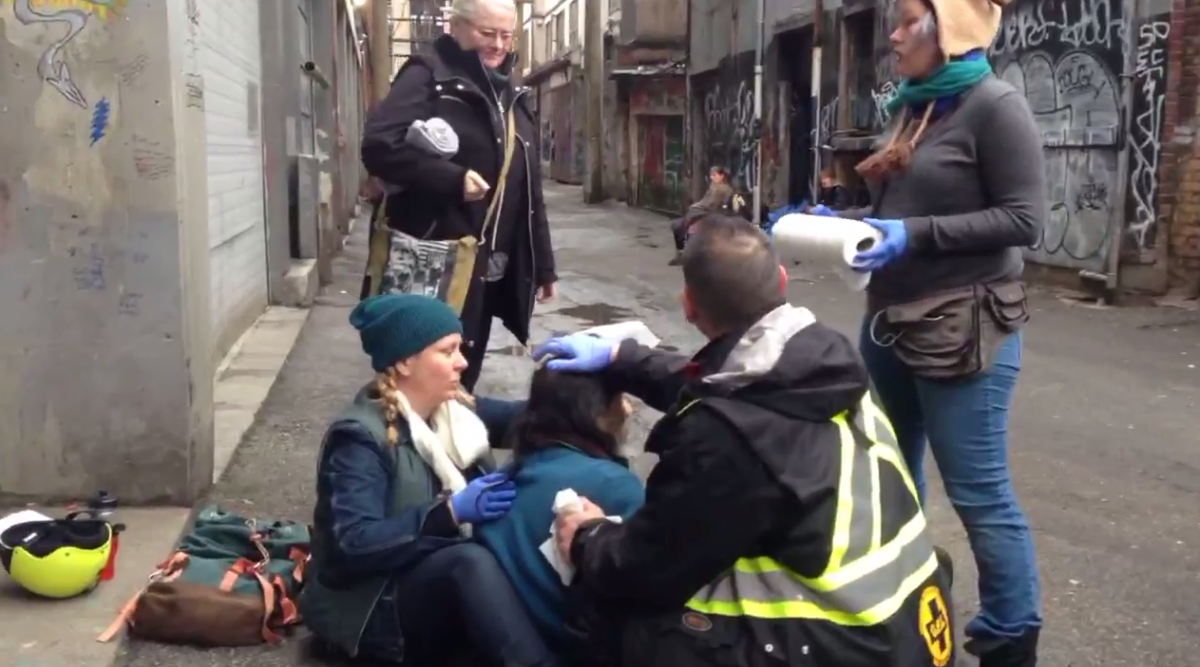B.C.’s health minister acknowledged Monday that the province’s overdose crisis is taking its toll on more than just drug users and first responders.

Adrian Dix was responding to a report from the Central City Foundation that found many workers are at risk burning out and even developing post-traumatic stress disorder (PTSD).
“Staff and volunteers are directly impacted, either dealing with overdoses at their locations or nearby, or tracking their clients and being vigilant to be sure the people they serve are still alive,” the report said.
“This is causing immense trauma to these front line workers and is having a huge impact on operations.”
LISTEN: Volunteer run safe injection site looks for new options

Speaking on Monday, Dix said the province has made strides in addressing those issues among professional first responders.
“Steps have to be taken to support them,” he said. “We’re seeing some of the response to that on the professional side in increased time off that people need to take and increased stress in the system on people who are working on it professionally.”
But with the drug crisis showing no sign of slowing down, Dix acknowledged that public employees aren’t the only ones facing mental health and exhaustion issues — and said their experiences could be helpful to others in the field.
- ‘Super lice’ are becoming more resistant to chemical shampoos. What to use instead
- Solar eclipse eye damage: More than 160 cases reported in Ontario, Quebec
- Invasive strep: ‘Don’t wait’ to seek care, N.S. woman warns on long road to recovery
- Canadian man dies during Texas Ironman event. His widow wants answers as to why
“There are lots of people working on the crisis now, so part of the lessons that we’re learning with our professional staff will have to be applied to everyone else who’s working there,” Dix said.
“We’re taking some specific steps with our own staff, in support of our own staff, but clearly over the next year we’re going to have to do more.”
Whether “doing more” would include new funding commitments for non-profits remains unclear.
Nearly three quarters of organizations interviewed for the report said the overdose crisis was having a direct effect on staff, affecting morale and increasing cases of anxiety and depression have increased.
It also found that front line workers felt undervalued by society and funders — including government.
The report called on the province to increase funding for front line organizations, both in terms of regular operating funds and in support of services for overstretched staff.
It also called for more support from the province for programs that are working, such as overdose prevention sites, and more radical programs like the Crosstown Clinic that prescribe medical grade heroin.
The report went on to argue that not enough resources are being directed to deal with the underlying causes of the crisis such as lack of affordable housing, poverty and the stigma of drug use.









Comments